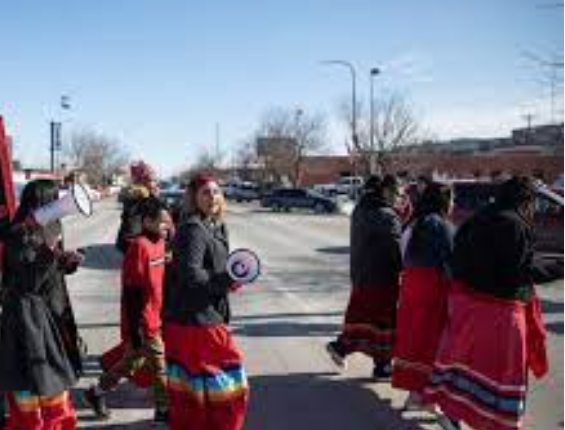In a recent legal move, the Oglala Sioux Tribe has taken the bold step of filing a new lawsuit against the United States government, marking a significant escalation in their quest for justice and adequate law enforcement on their lands. This action comes on the heels of a 2022 lawsuit where the tribe sought to address what they deemed insufficient law enforcement resources. The Pine Ridge Reservation, a vast expanse of land larger than Delaware and Rhode Island combined, is the heartland of the Oglala Sioux Tribe. It is a place steeped in history and culture but now finds itself in the throes of a deepening crisis.
The Crux of the Crisis
At the core of this new lawsuit is the tribe’s plea for funding to establish “an effective law enforcement program.” This request stems from an acute awareness of the escalating challenges they face daily, including rampant crime, violence, drug abuse, and alcoholism. The situation has deteriorated to such an extent that Oglala Sioux Tribe President Frank Star Comes Out declared a state of emergency in December, emphasizing the snowballing chaos engulfing their community.

Algin Young, the Chief of Police for the Oglala Sioux Tribe’s Department of Public Safety, painted a grim picture of their current capabilities. With a mere 60 sworn officers, of which only 33 are patrol officers, their force is stretched perilously thin. The statistics are stark: out of 165,799 calls for help received last year, the department could only respond to about 35% due to their limited resources.
The lawsuit is not merely a demand for resources but a call for justice, equality, and the honoring of treaties. President Star Comes Out’s passionate statement, “Any lawlessness in Pine Ridge starts in Washington DC,” underscores a profound sentiment of betrayal and neglect. The tribe argues that the federal government has a moral and legal obligation to uphold the treaties and promises made, which include ensuring the safety and well-being of the reservation’s inhabitants.
This legal battle transcends the boundaries of the Pine Ridge Reservation. It is a microcosm of the struggles faced by many Indigenous communities across the United States. These communities often grapple with underfunded law enforcement, inadequate healthcare, and a host of other systemic issues that undermine their sovereignty and welfare.
The Oglala Sioux Tribe’s lawsuit is a beacon of resistance and a plea for the recognition of their inherent rights. It challenges the status quo and demands a reevaluation of the government’s responsibilities toward Native American tribes. The outcome of this legal confrontation could set a precedent for how the United States addresses its treaty obligations and the broader issue of Indigenous rights.
As the Oglala Sioux Tribe embarks on this legal journey, the path forward is fraught with challenges. However, it is also an opportunity for meaningful dialogue and reconciliation. The federal government’s response to this lawsuit will be closely watched, not only by the Oglala Sioux but by Indigenous communities nationwide. It is a chance to right historical wrongs and forge a future where the rights and dignities of Native American tribes are fully honored.
Read More:
- Trump scolded by judge during E. Jean Carroll’s testimony
- Controversy Surrounds New State Law After Tragic Infant Death in Port Townsend
- Beaver dam blamed for huge chunk of road that washed away during rainfall in Livingston neighborhood
In the end, the tribe’s fight is not just for funding or resources; it is a fight for respect, sovereignty, and the right to live in peace and security on their ancestral lands. The Oglala Sioux Tribe’s lawsuit is a stark reminder of the ongoing struggles of Indigenous peoples and a call to action for all those who believe in justice and equality.

